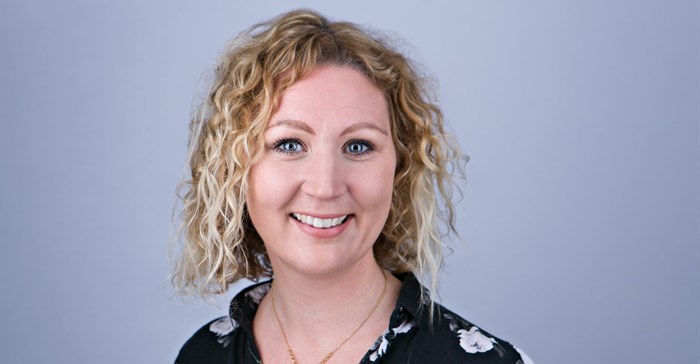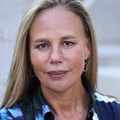Discover the remarkable journey of Rosie Guest, the trailblazing chief marketing officer (CMO) at Apex Group, a global financial services provider. In just nine years, Guest has spearheaded the transformation of Apex Group's marketing and communications function, elevating it from a modest team to a strategic powerhouse.

Source: Supplied. Rosie Guest, chief marketing and communications officer at Apex Group.
This article delves into her exceptional leadership, the company's phenomenal growth, and the pivotal role marketing plays in Apex Group's success.
Gain insights into Guest's mission to position marketing as a proactive partner and the groundbreaking accomplishments achieved along the way.
Could you tell me a little about your journey to leadership at Apex Group?
I joined Apex Group nearly nine years ago now – it was a totally different company then, with around 300 employees globally and a much narrower service capability, I was the only marketer.
I had a unique and amazing opportunity where I have been able to build the marketing and communications function from the ground up as the company simultaneously underwent unprecedented growth to become one of the largest in the industry; with nearly 12,000 people and servicing $3tn in assets.
Today the marketing and communications team remains lean for the size of the business but has scaled to nearly 50 people. I have made it my mission to develop the function and the team into a high-performing and well-respected strategic partner to the business, rather than a reactive “support” function.
Speaking the language of senior leaders, proving the value the function delivers and aligning that to the bottom line enabled me to get marketing a seat at the table by becoming the first chief marketing officer the business had ever had. It takes hard work, dedication and a real passion for what I do, but what an honour to be able to look back and see what we have accomplished over the years.
What lessons learnt from challenges on your career path do you bring to your role at Apex Group?
The role of marketing has changed substantially over the past couple of decades, with a blended skillset required of some science and some creativity. With tech innovation there is a huge opportunity for marketing to be a real driver of growth, but in many industries, that’s really not widely appreciated by the broader business.
Traditional financial services is no exception to that, so there is a challenge and an opportunity in the fact that there is still a legacy perception from
many people about what marketing is and does. That means marketing really has to prove itself and shift away from a subservient position that acts as an order centre for the business, and evolve into a more structured, strategic and authoritative function that leads the conversation.
Of course marketing still needs to collaborate, and leverage experts across the business to build out the marketing plan – but the shift is to go to those conversations with stakeholders prepared and not ask them ‘what do you want us to do to support you?’ but by saying ‘this is our marketing strategy and this is how it’s going to complement what you’re doing’. It’s such a tiny difference but yields significant perception and delivery results in the long-term.
In my early career I really jumped into the workplace as an outgoing and energetic young professional, unafraid to bring her personality to work and was comfortable interacting and building relationships even with the most senior people across the business. Particularly when working in a male-dominated industry it’s so important for women to resist being stifled by outdated perceptions of what a female professional or female leaders should be like.
As I started to progress into more senior and visible roles, I tried to temper my personality thinking I would be taken more seriously if I was slightly less jovial or slightly more reserved. I quickly realised that a) it was impossible to do, and b) it really wasn’t necessary – I’ve learned to embrace my own style,and it’s actually some of those things that make me different that have underpinned my ability to be successful.
You should be proud of not fitting the mould – and find a working environment that allows you to flourish and draw on these strengths to achieve your full potential.
Congratulations on being the key driver of the Women's Accelerator Program at Apex Group. Could you tell me a little bit about it and what differentiates it from similar programmes, if any, in the Finance industry?
It’s a double whammy being a woman and being in marketing when it comes to unconscious bias and pre-conceived ideas about ability. As a result, I feel really strongly that women shouldn’t have to fight as hard as they do to progress – and when I joined the executive committee two
years ago I saw an opportunity to be able to do something to ease that path for other women at our business.
We launched the Women’s Accelerator Program in 2022 to address the ‘broken rungs’ for women on the ladder to progression. When it comes to gender diversity, people tend to look at the C-suite as it’s the most visible – but that’s not the issue – the issue starts much earlier, and we need to be supporting more women through mid-management to ever have a lasting impact on the top.
The programme is a development initiative designed to drive equity for female progression and diversity at all levels within the Group. Women make up around 52% of the workforce across the financial-services industry, but that percentage declines at each rung of the career ladder resulting in representation of 37% at mid-management, and just 16% in the C-Suite – and we were seeing the same trends in our business.
By providing programme members with the tools and skills to advance professionally and reach their full potential – the goal is to elevate already high-performing female talent we have in our business.
The Women’s Accelerator Program is designed to accelerate the progress of high-performing female talent through the business, eroding the gender disparity at mid- and senior-management levels to provide a clear path for career progression.
The programme is not about quotas, or promoting women over men, it’s about nurturing our existing female talent and driving equity in progression. Diverse teams perform better, and we have an excellent pool of female talent across the Group so we are passionate about accelerating their progression to erode gender disparity across more senior levels of our business.
What outcomes would you like the programme to have achieved at the end of five years?
We’ve already been blown away by the success and impact the programme has had in its first year – not least in the measurable impact on promotions and progressions for the members of the 2022 cohort, but also by the strength in the community that has developed as a result.
It’s been such a privilege to watch so many women across our business grow in confidence, take control of their progression and flourish in their careers.
Over half of the 51 participants progressed in their careers through promotion to a new role or corporate title level. A great example of this was my colleague Alice Read, who was promoted into a leadership role at the end of the programme, as she became head of our Jersey office to lead a team of over 400 people – Alice also told me that the reason she had the confidence to put herself forward for the role was a direct result of the Accelerator program – hearing that makes all the work that went into it worthwhile.
We’ve had over 300 applications for the 2023 programme.
I hear that in 2022 over 50% of participants progressed in their career via promotion. This seems almost counterintuitive to the corporate trends I've heard of where men and women at C-suite levels would by nature be threatened by employees moving up the corporate ladder quickly, and be worried about potentially being kicked out of their positions and roles. How is it that there is enough room for everyone to be successful at Apex, and that Apex was able to completely turn its employee model from scarcity thinking to abundance?
The programme isn’t about promoting some people over others, it’s about recognising and addressing an issue surrounding equity in progression. Firstly, there is more than enough room for people to flourish and progress within their careers at Apex Group – we have grown from around 2,000 people to nearly 12,000 in just a few years – so there is an abundance of opportunity and room for everyone as we continue to evolve and expand.
Our culture is flat-structured and high-performing; that environment breeds diversity of thought and we look to enable high performers to be able to flourish - and we believe in the power of our people, anyone in any role and at any level can have an idea.
We’re fortunate that as a disruptive brand in the financial services industry we’ve never been afraid of doing things differently. A significant leap forward for us was the introduction of the “Shadow Executive Committee” at Apex Group – a team of high-achieving, non-exec leaders from around the world who were given the experience of being involved in C-suite discussions and business strategies.
The committee was 50/50 split between men and women and represented a diverse set of younger senior leaders who brought different perspectives, challenged the status quo and demonstrated how diversity can help improve business decisions and drive innovation. Two of the Shadow Executive committee members were promoted into the executive committee itself the following year!
Everything we achieve we achieve together as a team, that’s why we celebrate the progression and success of our people.
With over 300 applications for the 2023 programme, what does the demand for such a programme reveal about where women in Finance are at in terms of their mindset as it pertains to their careers, and what their drive to empower themselves reveals about the industry?
When we first launched the programme people were sceptical, but now having seen the difference the 2022 programme had for its members – there is an energy and excitement about the programme and now other women want to be part of it. I think there is definitely still a case of needing to see it to believe it, and the visibility the programme has given women across our business has sparked a confidence in others and a hunger to be part of it.
What does it reveal about the industry? That women aren’t the problem! It’s not because women are having children and leaving the industry that they don’t reach the top as often as their male counterparts, it’s not because they aren’t as ambitious, it’s because there are deep-seated systemic issues in the way the industry operates when it comes to gender equality and equity, but a programme like this shows that with the right support and the right focus from a company that wants to make long-term sustainable change, we can slowly change the tide.




























































